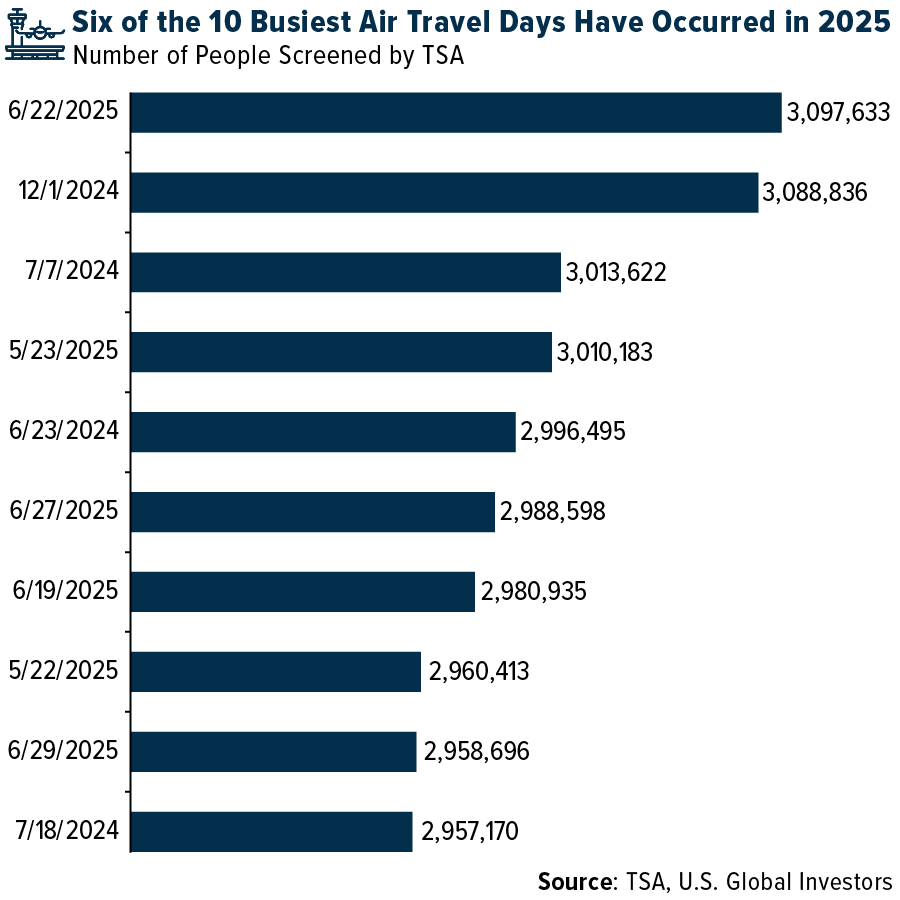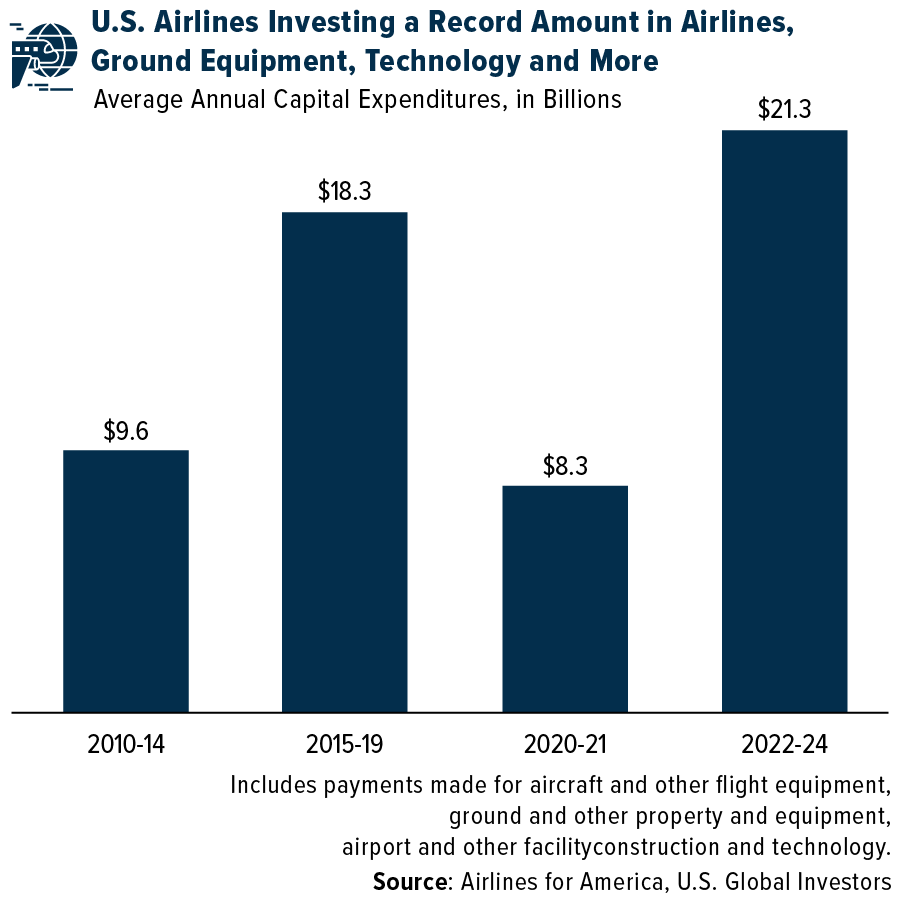Futures slip, bank earnings ahead, Powell to speak - what’s moving markets
If you’ve been following the mainstream financial media lately, you might think the airline industry is in crisis. From headlines about tariffs and labor costs to geopolitical tensions and delays at Newark Airport, it sounds like air travel should be tanking.
The data, however, tells a very different story.
Let’s start with travel numbers. The Transportation Security Administration (TSA) just confirmed that six of the 10 busiest travel days in its entire 24-year history have happened this year. That’s not a typo. Six of the top 10 ever, in just the first half of this year.
Take Sunday, June 22. TSA screened 3.097 million passengers, blowing past all previous records. Chicago O’Hare, one of the world’s busiest airports, saw nearly 114,000 passengers, also a record.

Fourth of July Expected to Break Even More Records
The travel industry fully expected the Fourth of July holiday weekend to be even more historic. AAA projected 72.2 million Americans would travel at least 50 miles from home the holiday period, with nearly 6 million taking to the skies—an unprecedented number.
Meanwhile, the Federal Aviation Administration (FAA) reports that U.S. airlines are flying more planes than last year. Daily scheduled flights are up 4% from 2024, with July 3 expected to see over 51,000 flights. American Airlines (NASDAQ:AAL) alone planned to transport 7.6 million customers during the July Fourth holiday. United expected over 6 million.
These aren’t signs of a shrinking industry. They’re the hallmarks of a surging one.
Bullish Indicators
Let’s step back and think about what this means. Despite inflation, rising ticket prices and geopolitical concerns, Americans continue to prioritize travel. They’re seeing loved ones. They’re taking long-postponed vacations. They’re doing business face-to-face. And crucially, they’re flying to do so.
According to analysts at Jefferies, these record-setting TSA numbers are proof that the economy is performing better than many talking heads would have you believe.
I agree! When people feel secure enough in their jobs and finances to book flights and hit the skies, it’s a bullish indicator for both consumer confidence and economic resilience.
Europe in Full Recovery Mode
Europe is telling a similar story. According to Eurocontrol, the continent’s daily flight activity in mid-June reached 99% of 2019 levels—just shy of full pre-pandemic recovery. Low-cost carriers like Ryanair, Wizz Air and Turkish Airlines are outperforming 2024 numbers and flying more routes than in 2019. Four of the top 10 European airline groups now exceed pre-COVID volume.
Global jet fuel demand has risen right alongside passenger traffic. Bloomberg reported that the world would consume over 7.3 million barrels per day of jet fuel during the July Fourth holiday week, up 3.1% from last year.
Record Investment
So why is Wall Street still cool on airline stocks? Some of it might be fear. Some investors might remember the shutdowns of 2020 and worry about recession risk and/or inflation.
In my view, those fears are backward-looking.
What I think the market is missing is that airlines have become leaner and more disciplined. They’ve improved cost structures, expanded profitable routes and leaned into loyalty programs and ancillary fees for services like extra legroom.
According to Airlines for America, U.S. carriers are investing a record amount right now in aircraft, ground equipment, technology and more. Reinvestment averaged an incredible $21 billion annually from 2022 to 2024. Common sense says they wouldn’t be spending this heavily if they were anticipating turbulence.

Fully Booked Flights
As contrarian investors, we seek discrepancies between perception and reality. And right now, airline stocks appear to be unfairly punished based on outdated narratives. The data suggests robust demand. Every flight I’ve been on in the past year has been fully booked.
While Wall Street is looking in the rearview mirror, we believe the runway ahead is longer than they think.
****
All opinions expressed and data provided are subject to change without notice. Some of these opinions may not be appropriate to every investor. By clicking the links above, you will be directed to a third-party website. U.S. Global Investors does not endorse all information supplied by these websites and is not responsible for their content.
